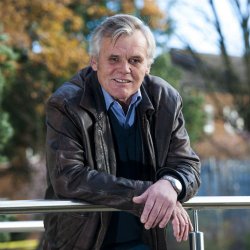Fusion fuel cycle modelling for tritium pressure relief systems
Development of a dynamic model for tritium pressure relief systems to address design issues that are directly related to the feasibility of future fusion systems.
Start date
1 October 2022Duration
3.5 yearsApplication deadline
Funding source
FEPS DTP 100% (Home) and UK Atomic Energy AuthorityFunding information
- UKRI stipend (e.g. £16,062 for 2022/23)
- Fees covered
- £3,000 Research Training Support Grant
- £3,000 Bench fees.
About
This PhD project is a collaboration between University of Surrey (UoS) and the UK Atomic Energy Authority (UKAEA).
Fusion, the process that powers the Sun, can play a big part in our low-carbon energy future. Developing models of the fusion fuel cycle is a long-standing problem in fusion. The main aim of a plant-scale model is to demonstrate that the fuel requirements (quantity, composition, reliability, etc.) of the reactor can be achieved with a given fuel cycle architecture and within strict restrictions, mainly from a safety point of view.
The proposed scope of this PhD project is to develop a dynamic model within a fusion fuel cycle using chemical process simulations and modelling tools that can support the development of a pressure relief philosophy for tritiated fluids. The model will help to identify critical pressure relief scenarios within the fusion fuel cycle and will focus on fusion-specific unit operations and how to effectively model them for process (pressure relief systems) simulations under uncertainty. This work is closely linked to UKAEA’s Spherical Tokamak for Energy Production (STEP) flagship project. The model will mainly use STEP’s fuel cycle architecture. The investigations will find immediate applicability in fusion safety and environmental studies and will help guide future areas of research, including developing novel unit operations and tritium transport.
The successful candidate will be supervised by Dr Dimitrios Tsaoulidis (UoS) and co-supervised by Dr Eduardo Garciadiego-Ortega (industrial supervisor/UKAEA), Iryna Bennett (STEP fuel cycle modelling Lead/UKAEA) and Dr Franjo Cecelja (UoS). The successful candidate will be based at the Department of Chemical and Process Engineering and will have the opportunity to work closely with scientists at UKAEA and academic partners at world-leading universities. They will also receive extensive research training and will be given opportunities to participate and present their work in conferences, workshops, and seminars to develop professional skills and a research network.
The post is offered to UK and international students for a start in October 2022
About UK Atomic Energy Authority
UKAEA is at the forefront of nuclear fusion science and technology. Spherical Tokamak for Energy Production (STEP) is an ambitious program by the UKAEA to design and build a prototype fusion power plant, with operation starting around 2040. The STEP prototype will have many of the features of a fully operational power station, including infrastructure and associated research and development facilities. It is likely to be a delivery project of comparable scale and value to a major operational power station. The Hydrogen-3 Advanced Technology (H3AT) Department manages the Active Gas Handling System (AGHS), the largest civilian tritium processing plant (tritium - one of the two main fuels needed for commercial fusion). This puts the H3AT Department at the forefront of process engineering applications in the field of fusion. The student will benefit from collaborating with both the H3AT Department and its unique experience in tritium technologies R&D, and the STEP programme which are leading the way in sustainable energy production.
Eligibility criteria
Applicants are expected to hold a first or upper-second class degree in a relevant discipline (or equivalent overseas qualification), or a lower second plus a good Masters degree (distinction normally required).
Open to UK and international candidates.
English language requirements
IELTS Academic: 6.5 or above (or equivalent) with 6.0 in each individual category.
How to apply
To apply, please send your CV to Dr Dimitrios Tsaoulidis (d.tsaoulidis@surrey.ac.uk) and start an application via the process through the Chemical and Process Engineering Research PhD programme page. Please clearly state the studentship title and supervisor (Dr Dimitrios Tsaoulidis) on your application.
Studentship FAQs
Read our studentship FAQs to find out more about applying and funding.
Application deadline
Contact details
Research

Studentships at Surrey
We have a wide range of studentship opportunities available.

